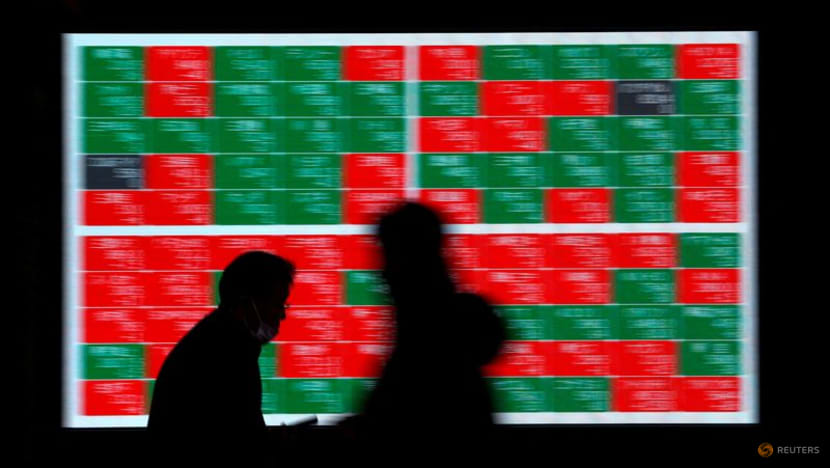SYDNEY : Asian shares extended losses on Thursday as troubles at U.S. lender First Republic Bank continued to unnerve investors amid concerns that growth in the world's biggest economy could very well surprise to the downside.
MSCI's broadest index of Asia-Pacific shares outside Japan were 0.3 per cent lower on Thursday, while Japan's Nikkei lost 0.4 per cent. China's blue chips were flat, but Hong Kong's Hang Seng Index slid 0.3 per cent.
Geopolitics also cast a pall over markets. U.S. Commerce Secretary Gina Raimondo said on Wednesday that Chinese cloud computing companies like Huawei Cloud and Alibaba division Alibaba Cloud could pose a threat to U.S. security and vowed to review a request to add them to an export control list.
But tech giants bucked the gloom, with Nasdaq futures up 0.4 per cent in early Asian hours as Facebook owner Meta soared 12 per cent after the bell with its earnings beat. Intel and Amazon will report their results later today.
Nomura shares fell more than 7 per cent early on Thursday after Japan's biggest brokerage posted a sharp fall in quarterly net profit after worries about a global banking crisis roiled markets and hit its investment banking business.
Overnight, in a brutal sell-off, First Republic Bank's market value briefly sank as much as 41 per cent to about $888 million, under $1 billion for the first time, a far cry from its peak of more than $40 billion in November 2021.
Investors are waiting to see whether it can find buyers for assets and engineer a turnaround after CNBC reported that U.S. government officials are currently unwilling to intervene.
"First Republic is a bank it would seem to soon be no more. As the bank attempts all manner of rescue strategies it continues to slide relentlessly," said Clifford Bennett, chief economist at ACY Securities.
"It is a case of the incredible shrinking bank. Until, in the end, it likely just simply ceases to exist."
Overnight, Nasdaq notched a 0.5 per cent gain on tech, while the S&P 500 and the Dow were pulled lower by weakness in economically sensitive sectors, hinting at mounting recession jitters.
Data showed that new orders for key U.S.-manufactured capital goods fell more than expected in March, suggesting that business spending on equipment was likely a drag on economic growth in the first quarter.
The Atlanta Federal Reserve's GDPNow, which tracks how incoming data influences estimated gross domestic product (GDP) for the current quarter, showed that the estimate for growth is now at an annualised 1.1 per cent, sharply down from 2.5 per cent just a week ago.
That suggests there may be a downside risk to U.S. first-quarter GDP data, due later on Thursday, with analysts polled by Reuters tipping an expansion of 2 per cent. Wells Fargo lowered its forecast for U.S. GDP growth by 100 basis points to a 0.8 per cent rise.
Fed funds futures are pricing in a chance of about 80 per cent that the Federal Reserve will hike interest rates by 25 basis points (bps) at its May meeting next week, while factoring in expected rate cuts of 45 bps by the end of the year.
In the currency markets, moves were largely muted. The euro was hovering close to its highest level in over a year at $1.104, benefiting from bets that the economic outlook for Europe could be on the upside after Germany raised its economic forecast for growth this year.
The dollar index, which measures the currency against six major rivals, dropped to 101.4 on fresh concerns over a U.S. slowdown.
U.S. Treasuries were steady, with the two-year yields holding at 3.9345 per cent, and ten-years at 3.4391 per cent. One-month Treasury yields tumbled ahead of a possible Washington vote on the U.S. debt ceiling.
Oil recovered some ground on Thursday after tumbling almost 4 per cent on recession fears. U.S. crude futures edged up 0.3 per cent to $74.5 per barrel, while Brent crude futures rose 0.5 per cent to $78.09 per barrel.
Gold was flat at $1,990.04 per ounce.
